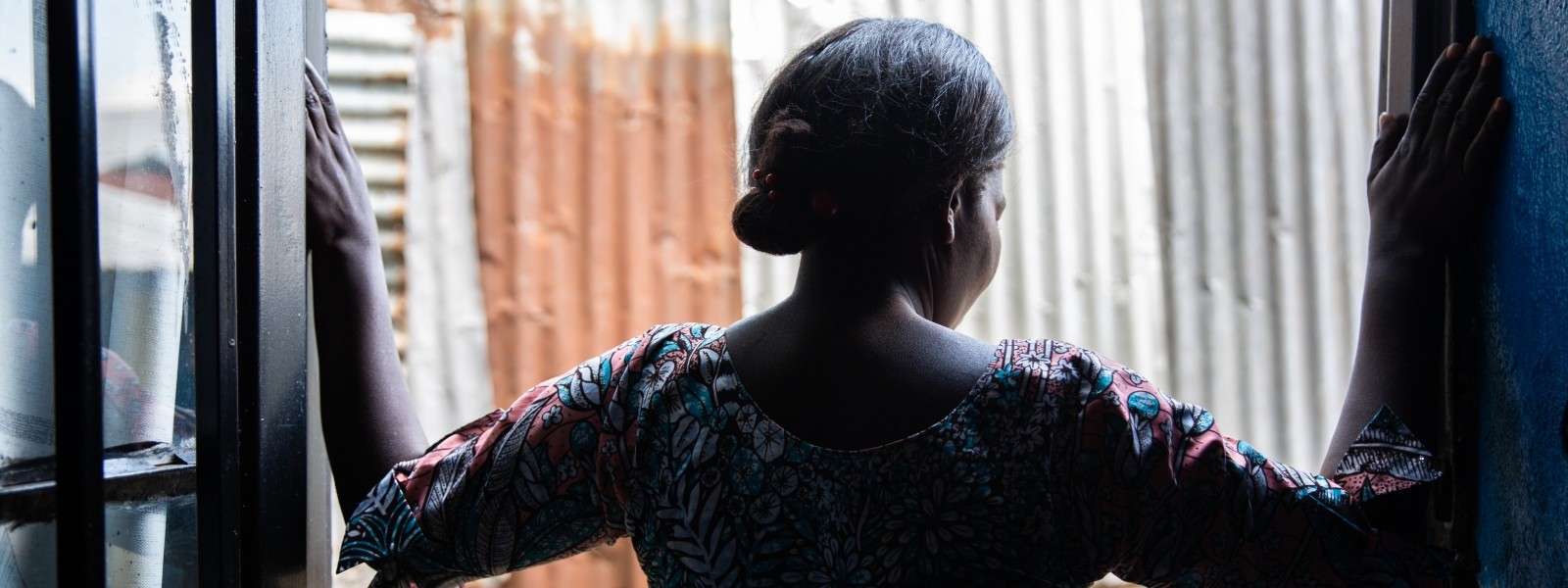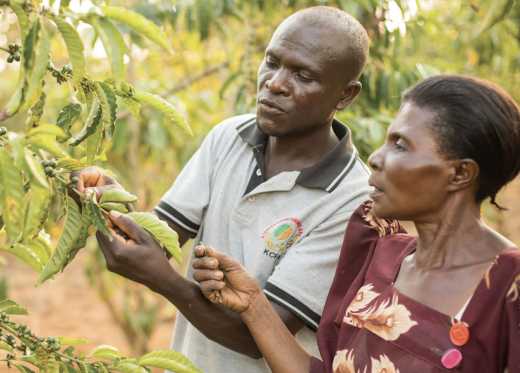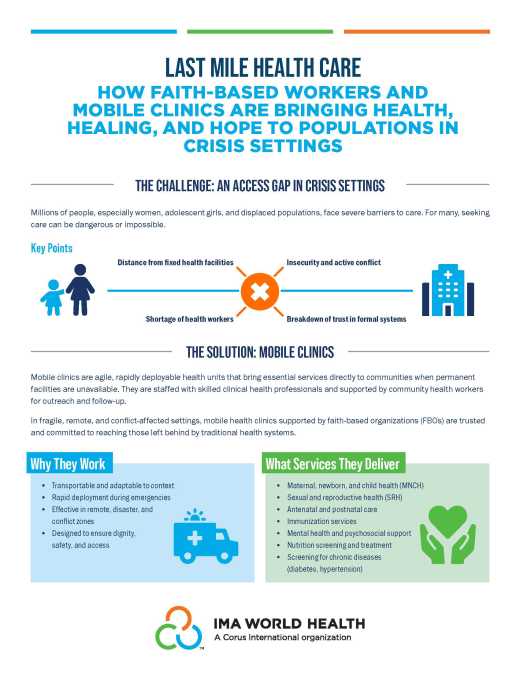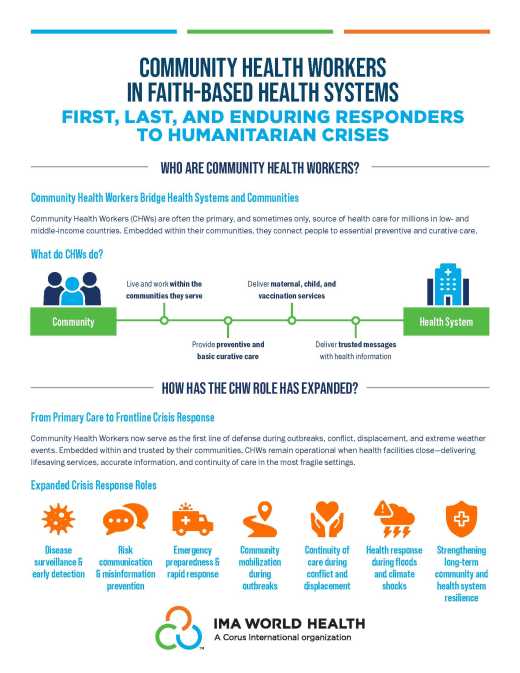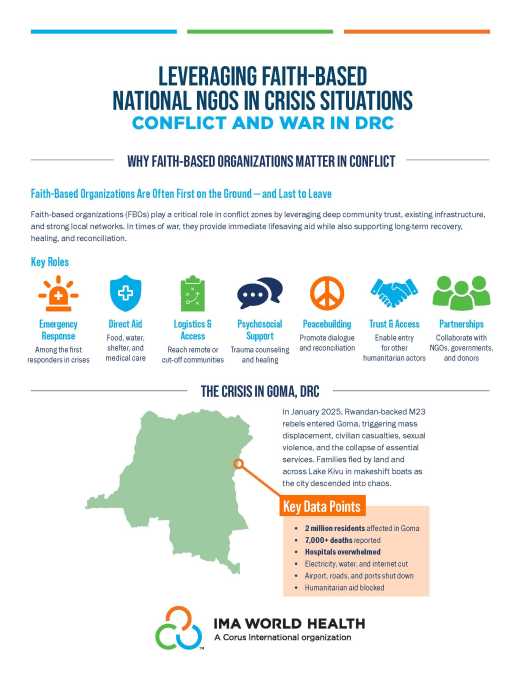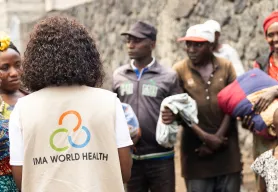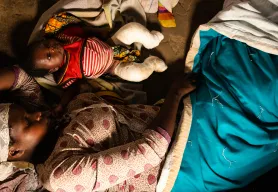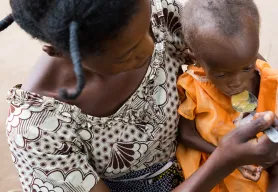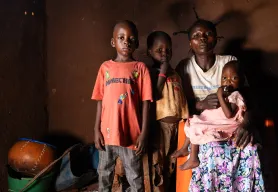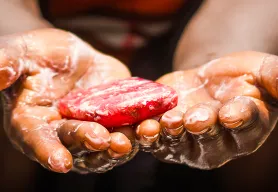IMA World Health is committed to preventing, mitigating, and responding to violence against women and girls globally alongside the Corus International family of organizations.
violence against women and girls refers to any harmful act against an individual or group based on their sexual or gender identity. Disproportionately affecting women and girls, violence against women and girls can include sexual, physical, mental and economic harm carried out in public or in private. Although violence against women and girls can occur at any point in a person’s life, the risk increases considerably during humanitarian crises and in fragile and conflict-affected settings.
violence against women and girls is a violation of human rights that not only undermines the safety and dignity of individuals but also destabilizes the economic stability and security of communities and nations.
Our Approach
At IMA World Health, we address violence against women and girls through a three-pronged approach:
![]()
Prevention: We challenge harmful practices through social and behavior change strategies, while adopting Do No Harm (DNH) policies to mitigate violence against women and girls risks. We work to reduce community tolerance to violence and decrease the vulnerability of households and individuals, especially women and girls.
Mitigation: We integrate violence against women and girls risk mitigation systematically in the design, implementation, and evaluation of multisectoral programming. We analyze violence against women and girls risk in fragile settings and throughout humanitarian crises, and strengthen both informal and formal social protection systems available in the community or region.
Response: We strengthen the capacity of health service providers to respond to violence against women and girls survivors. We identify existing response mechanisms and build up their capacity to deliver safe, respectful, and confidential services. We also develop survivor referral pathways and complaint mechanisms, and disseminate information about available services for violence against women and girls survivors in community groups and through healthcare networks.
In eastern DRC, members of a youth club work to change harmful practices and beliefs in their community and raise awareness about equality.
We believe that strengthening local capacity, mobilizing communities, sensitizing health service providers, and embedding strong response mechanisms into communities and health systems can lead to resilient, healthy environments that are free from violence.
Read more about our violence against women and girls efforts in our InUnison digital newsletter.
Project Highlights
IMA World Health leads the five-year, US government-funded MOMENTUM Integrated Health Resilience project, which is part of a suite of innovative MOMENTUM awards designed to holistically strengthen quality maternal, newborn, and child health (MNCH) in host countries around the world. Working alongside local organizations, governments, and humanitarian and development partners in fragile settings, the project helps accelerate reductions in maternal, newborn, and child illness and death by increasing the capacity of host country institutions and local organizations—including new and underutilized partners—to introduce, deliver, scale up, and sustain the use of evidence-based, quality care. While addressing violence against women and girls through community-based approaches, the project’s focus on health resilience reduces chronic vulnerabilities by addressing risks and responses to shocks and stresses.
Funded by the US government and implemented by IMA World Health, the Counter-Violence against women and girls Program (known locally as Tushinde Ujeuri) is implemented in the Democratic Republic of Congo (DRC), where years of insecurity and conflict alongside deeply rooted inequities have contributed to high rates of violence against women and girls. Tushinde builds on the highly successful US government-funded Ushindi Project (2010-2017), through which IMA World Health provided violence against women and girls prevention and response activities in highest risk areas of eastern DRC. Our holistic approach to addressing violence against women and girls incorporates social and financial recovery, in addition to medical care and psychosocial support. To date, 1.5 million community members have been reached with violence against women and girls prevention messages.
Funded by the US government’s Bureau for Humanitarian Assistance, IMA World Health has procured and distributed PEP Kits in the DRC since 2017, improving the supply chain in 10 target provinces with a high prevalence of violence against women and girls. PEP Kits reduce a survivor’s risk of contracting HIV and other sexually transmitted diseases. The project employs a multipronged supply and distribution strategy which increases access, reduces stock-out, and reduces cost per PEP Kit through local sourcing. Through this holistic approach, IMA World Health has cumulatively purchased, kitted and distributed over 95,000 PEP Kits. In addition to increasing access to PEP Kits, the project works to close the training gap of health care providers in violence against women and girls survivor care.
IMA World Health served as the founding organization and secretariat of We Will Speak Out U.S. a coalition of faith-based organizations working together to empower faith communities to speak out against violence against women and girls. In 2014, IMA World Health, on behalf of the coalition, partnered with Sojourners to release Broken Silence, a report based on a Lifeway Research survey of 1,000 U.S.-based Protestant pastors on their understanding of and response to violence against women and girls in their congregations and communities. The report found that pastors often underestimate the prevalence of violence against women and girls, speak infrequently about it and have even responded to disclosures of violence in ways that may inadvertently do more harm than good. IMA World Health deepened this research through a partnership with the Science, Religion, and Culture Program at Harvard Divinity School and released the “Interrogating the Silence” report in 2015. This study found that, while religious leaders are a powerful resource for victims and survivors of violence against women and girls, they need more training on the available tools, gender relations and social mechanisms that contribute to violence.


